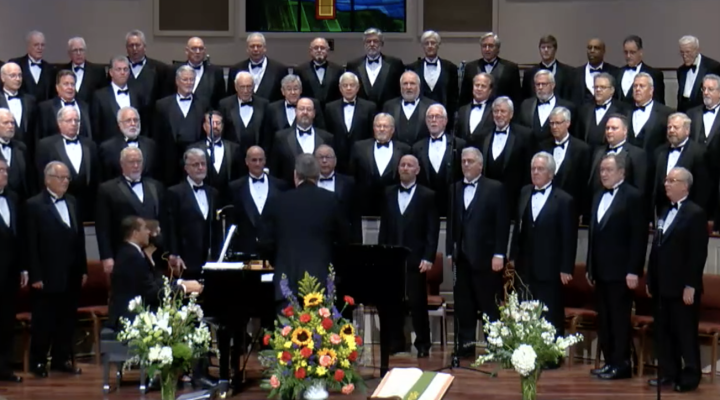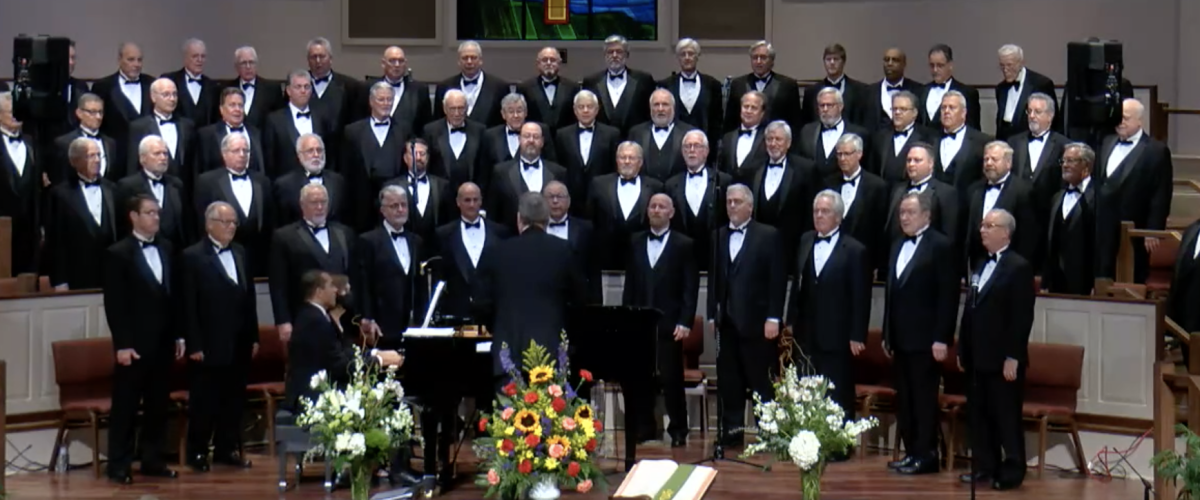It was the late 1960s. Musical variety shows were all the rage, and the Mormon Tabernacle Choir was selling millions of records and appearing often on television. That’s when three leaders at the Southern Baptist Convention’s Radio and Television Commission got an idea.
Sitting in Fort Worth, Texas, just a few miles from the campus of Southwestern Baptist Theological Seminary — then the world’s largest seminary and home to a large music school — Paul Stevens, Jimmy Allen and Joe Ann Shelton turned their attention to the vast numbers of music ministers serving in SBC churches across the country, many of them seminary-trained musicians with graduate degrees.
The leaders reasoned: What if we could create an auditioned choir of these men and use them on television to spread the gospel?
The result was creation in 1969 of a 100-voice choir called The CenturyMen, a title explained as signifying “100 men for the new century.”
Fifty-three years later, the CenturyMen just performed their last concert, and the choir folders have been stored away for good. That final concert was held at First Baptist Church of Tellico Village, Tenn., and may be viewed online.
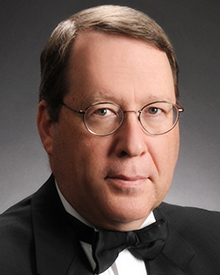
Charlie Fuller
“There are a myriad of reasons that the concert ministry of The CenturyMen is coming to an end,” said Charlie Fuller, the final director of the choir. “Church music has changed so much over the years in evangelical churches, especially Southern Baptist churches. Many churches have de-emphasized choral music as a part of their worship patterns.”
As a result, “churches are much less likely to support their music minister taking time off for CenturyMen projects,” he added. “Many churches once financially supported their music minister’s expenses related to participation, but few are willing to do that anymore. Once the SBC Radio and Television Commission ceased supporting the ministry of The CenturyMen, the men have funded the group’s projects themselves. It’s a serious financial commitment, and fewer men are able to provide that support on their own.”
For all these reasons and more, “the group has been in a very slow but unmistakable numerical decline for at least the last 25 years,” Fuller said. “It was clear that the time had come for their concert ministry to end.”
Indeed, the world of Baptist church music in 1969 and 2022 could hardly be more different. The choir began in an era when even small Baptist churches fielded choirs that sang traditional anthems every Sunday morning and offered age-graded choirs for children and youth. Traditional hymnody was the order of the day, and guitars and drums were just beginning to show up occasionally in place of pianos and organs.
The world of Baptist church music in 1969 and 2022 could hardly be more different.
Today, fewer than 40% of U.S. congregations are reported to use choirs, even though interest in choral singing in America is on the rise. Praise bands and praise choruses with lyrics projected on huge screens is the order of the day in a majority of American Protestant churches today.
The idea of religious television also has changed dramatically since 1969. Back in that day, the SBC had a strategy of producing films and television specials and a weekly program called “The Baptist Hour.” That later morphed to a satellite network and now an online presence, but there no longer is an SBC agency dedicated to radio and television production.
Less than 20 years after The CenturyMen choir was formed, leadership changes at the old RTVC resulted in loss of financial support for the featured choir.
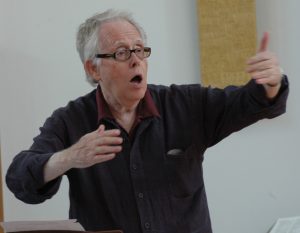
Buryl Red
“The men wanted to stay together and keep concertizing and making records,” Fuller said. “All they asked for from the RTVC was their music and their trademarks. These were granted, and the men formed their own 501(c)3 nonprofit organization and continued their work under the leadership of Baptist music hero Buryl Red.”
Red was about as famous a Baptist church musician as could be found in that era. He and Ragan Courtney created the most iconic youth musical of the 1970s, Celebrate Life, which has been performed millions of times around the world. Red became a well-known music educator and arranger.
He served as music director and conductor of The CenturyMen from their early years until his death in 2013. Along the way, he was aided by other notable Baptist church musicians, including James Woodward, Wes Forbis and Max Lyall.
Even after The CenturyMen no longer appeared on SBC-produced television programming, they created a pattern of regular trips overseas, recording projects, and domestic tours. The choir has produced 13 albums and appeared in three NBC network television specials. The third of those NBC specials, “China: Walls and Bridges,” won an Emmy.
In 1988, the choir traveled to China where they appeared on China Central Television in a concert performing traditional hymns, spirituals and American folk songs. The choir was featured at the 1999 Dove Awards and was nominated for a Grammy the next year. The men have sung at the U.S. Capitol, Constitution Hall, the U.S. Air Force Academy and appeared on the international broadcast of Robert Schuller’s “Hour of Power.”
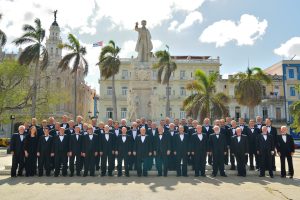
The CenturyMen in Cuba
Other international tours included Russia, Poland, Germany, Austria, Switzerland, Portugal, Israel, Turkey, Canada, Brazil, England, Scotland, Wales and Cuba. They sang several concerts in New York City only a few weeks after the Sept. 11 attacks of 2001.
As the group sang its last notes last week, six original members of the choir remained. And in recent years, the group had added two CenturyWomen. About 60 singers were present for the final concert.
One thing has been consistent through the years. The choir’s stock in trade is a certain style of traditional classical and gospel arrangements that would be familiar to anyone raised in a traditional Southern Baptist church of the late 20th century. And such was the case in the final concert, with selections ranging from choral classics to hymn arrangements and toe-tapping gospel songs.
“The CenturyMen have been known primarily by the unique and wonderful arrangements of their long-time arranger, music director and conductor Buryl Red,” Fuller said.
Across the years, those who sang in the choir enjoyed both the music and the camaraderie.
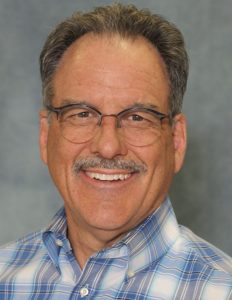
Todd Wilson
“It is rare to find a group of talented musicians that come together once a year and instantly share a bond of fellowship, love, respect and partnership in ministry,” said Todd Wilson, pastor for worship and music at First Baptist Church of Abilene, Texas. “While many groups may share the camaraderie, The CenturyMen had the added benefit of exceptionally gifted singers who combined to create a sound that was singular and unparalleled in its ability to express the heights and depths of sacred music.”
Choir members not only sang together but were able to “weep, mourn, rejoice and celebrate the work of God in each of our lives,” he explained. “As members of the ensemble, we knew we could trust each other to sing our parts with precision, and in doing so, we shared rich musical, spiritual and emotional experiences.”
Dan Arterburn, a music ministry consultant based in Nashville, has sung with the group since 1985. Joining the choir was a dream come true.
“When The Centurymen were formed in 1969, I was 19 and had completed my first year in college,” he said. “My minister of music, Doyle Searcy, in my home church at Glasgow Baptist Church in Glasgow, Ky., was accepted as a charter member of the group. From that point forward, I had always prayed I might have the opportunity to audition for The Centurymen.”
When he joined the staff at Hermitage Hills Baptist Church in Hermitage, Tenn., the congregation was enthusiastic about him singing in the choir, he said. “It was so exciting to start singing with this phenomenal group under the leadership of the genius of Buryl Red.”
Later, Arterburn would become one of the assistant conductors under Red.
“The Centurymen has been such a blessing to me and my ministry,” he said. “I have been blessed to make friends with so many music leaders from all over the country during my 37 years in the group who I would have never met had it not been for The Centurymen. Those friendships have been some of the greatest friendships I’ve had through my ministry.”
Related articles:
Interest in choral singing is not declining in America, so why are church choirs disappearing? | Opinion by Will Whittaker
Brentwood Benson Music announces sudden closing and the end of an era

